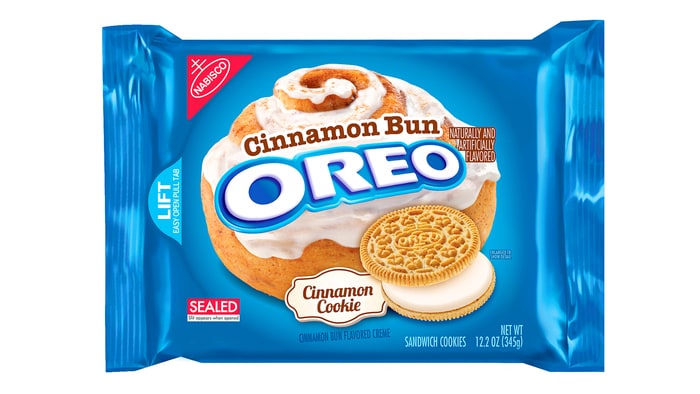Looks like 2016 is the year of reinvention for some major fast-food companies.
The biggest story of the week is McDonald's announcement of chocolate-covered French fries. We're not sure whether it's a great idea or a terrible one.
RELATED: So This Toddler Has 6-Pack Abs
Starting January 26, customers in Japan can order the McChoco Potato, which are fries drizzled in two types of sauces (chocolate with cacao flavor and white milk chocolate). The fast-food giant is hoping to create a sweet-and-salty harmony. We're just kind of hoping our kids won't ask for chocolate-covered everything after this.

Meanwhile, Oreo is mashing dessert and breakfast with their latest Cinnamon Bun Oreos (think cinnamon bun-flavored filling between two cinnamon cookies). And people are loving it. The cookie giant's first reinvention of the year joins popular flavors like birthday cake and s'mores.
Photograph by: Nabisco
RELATED: Oreo Products You Didn't Know Existed
But perhaps the craziest reinvention is from Coke and Pepsi, but in the "healthier" direction. A new study published in the International Journal of Obesity in November report that the effects of diet drinks on body weight "appear neutral relative to water, or even beneficial in some context." So … soda can be better for us than water?!
Before you start getting Costco-sized pallet of diet soda, if you dig a little deeper, you'll notice that the research was partly funded by the International Life Sciences Institute Europe, an industry-backed research body that includes executives from Coca-Cola, Nestlé and PepsiCo, among others. Moreover, three out of five ISLI Europe officers represent the food industry.
While the paper disclosed its ties to ILSI Europe, it did not disclose that the researchers involved were directly paid money by the group. According to the Independent, some co-authors were paid around £750 each (that's about US$1090). And according to Consumerist, one of the researchers is an employee of ILSI Europe, the study's lead author previously received research funding from an industry lobbing group now called Sugar Nutrition UK, and other team researchers have been previously paid for research by or—as revealed at the end of the study—are "employees and shareholders of companies that manufacture products containing sugars and low-energy sweeteners."
The Independent further reports that out of the more than 5,500 papers reviewed, only three were used to compare diet drinks with water. Two of those didn't find any significant statistical difference in weight loss and only one found that diet drinks led to more weight loss—and it was funded by the American Beverage Association.
As the kids like to say during storytime, dun dun duuuuuun.
We can't wait to see what the next 11 months of 2016 will bring.
Feature photograph by: McDonald's




